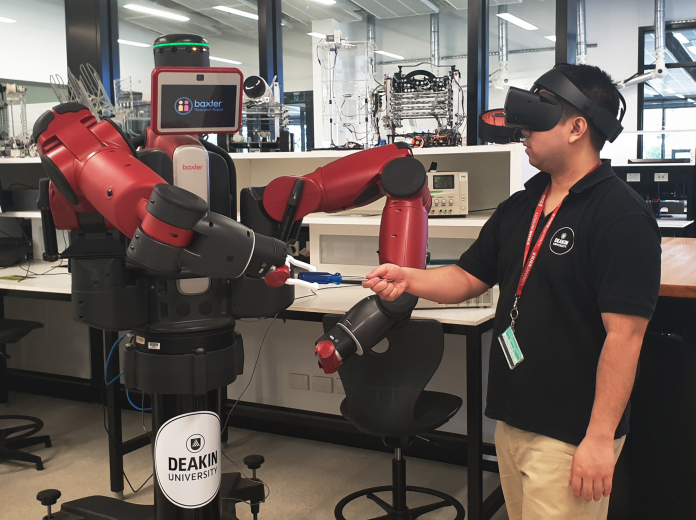
Melbourne Water and Deakin University’s CADET Virtual Reality Training and Simulation Research Lab are set to accelerate the development of a world first electrical safety training simulator.
The research project has received financial support from the Innovative Manufacturing Cooperative Research Centre (IMCRC), which invests Commonwealth funds in industry-led manufacturing research and development.
The collaboration will produce an industry-ready immersive system which uses cutting edge virtual reality technology and robotics. The technology will give users a ‘real life’ safety training experience that matches the stress and pressure found in workplace emergency situations.
The project team will work with a number of industries, regulators and authorities to identify and address any electrical safety training gaps as they develop the technology.
Melbourne Water’s SHEQ Manager Technology and Innovation Scott McMillan said once complete, it’s hoped the technology will become a crucial part of electrical training programs across the water sector and other industries.
“Through our partnership with Deakin University, we will deliver a world-class training system to improve the safety of current and future electrical industry workers.
“We look forward to improving safety outcomes through this immersive experience that boosts employees’ knowledge, skills, and confidence.” Mr McMillan said.
Director of Deakin University’s CADET Virtual Reality Training and Simulation Research Lab, Associate Professor Ben Horan, is excited to be working on another virtual reality project that has benefits for a wide range of industries.
“Ranging from snake bite prevention and first aid training through to confined space entry training, and now electrical safety training, our partnership has seen the development of a suite of innovative tools that teach skills essential for keeping people safer at work,” Associate Professor Horan said.
IMCRC CEO and Managing Director David Chuter sees Melbourne Water as a leader in innovation in workplace health and safety with significant industry influence.
“This project will put Melbourne Water at the forefront of applying virtual reality technology. “This research has the potential to influence how health and safety training is conducted – not just within the utilities sector but also set new standards to stimulate uptake more broadly in manufacturing and other industrial sectors,” Mr Chuter said.




















